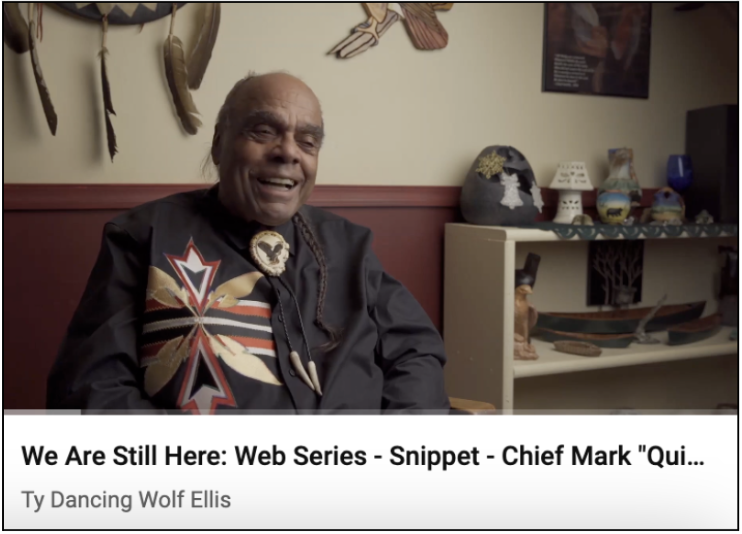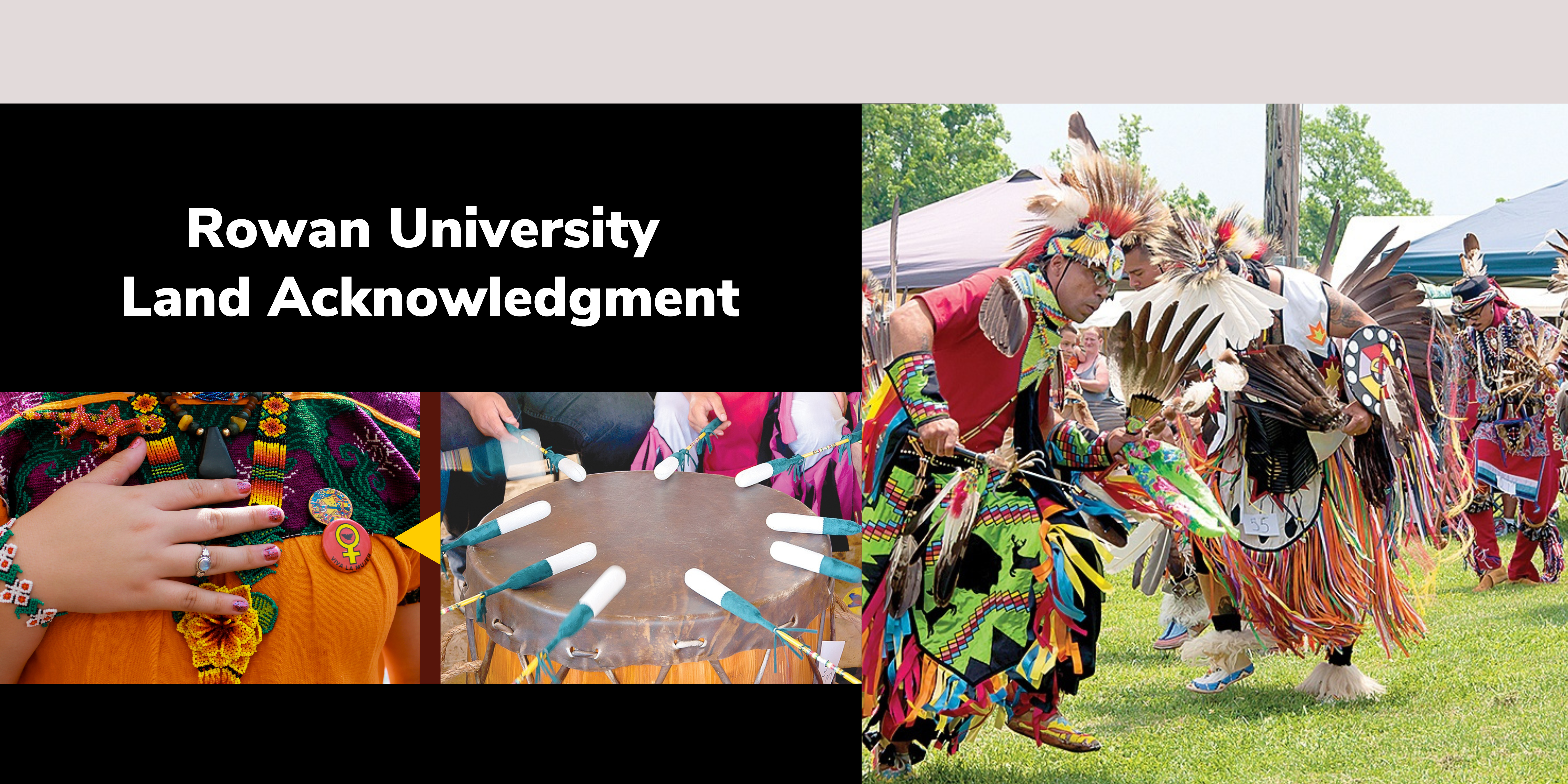Land Acknowledgement
Land Acknowledgement
Rowan University Land Acknowledgement
Rowan University’s campuses were built on Lenapehoking, the ancestral lands of the Nanticoke Lenni-Lenape tribal nation.
We acknowledge the history of genocide, forced displacement, and cultural erasure carried out against the Indigenous people of our region; and, we celebrate the vibrance, persistence, and ongoing project of sovereignty of the Lenni-Lenape people today.
To recognize the legacy of colonization and the struggle for peace between the Indigenous community and those who have migrated to this land recently or many generations ago, Rowan is committed to nurturing collaborative relationships with Indigenous and other historically marginalized groups in our region.
We aim to serve our native students, staff, faculty, and community members in a spirit of reciprocity and respect.
Beyond acknowledging settler colonialism in our region, Rowan University faculty, staff, and students are working to build meaningful partnership with our Lenape peers, colleagues, and neighbors. As we establish shared goals, we will update this page to reflect our commitments and progress.
Resources
As an institution of higher education, our central mission is to support learning. To that end, we offer resources for visitors to this page to learn more.
The Nanticoke Lenni-Lenape Tribe Nation’s Public Land Acknowledgment
“The land upon which we gather is part of the traditional territory of the Lenni-Lenape, called “Lenapehoking.” The Lenape People lived in harmony with one another upon this territory for thousands of years. During the colonial era and early federal period, many were removed west and north, but some also remain among the continuing historical tribal communities of the region: The Nanticoke Lenni-Lenape Tribal Nation; the Ramapough Lenape Nation; and the Powhatan Renape Nation, The Nanticoke of Millsboro Delaware, and the Lenape of Cheswold Delaware. We acknowledge the Lenni-Lenape as the original people of this land and their continuing relationship with their territory. In our acknowledgment of the continued presence of Lenape people in their homeland, we affirm the aspiration of the great Lenape Chief Tamanend, that there be harmony between the indigenous people of this land and the descendants of the immigrants to this land, “as long as the rivers and creeks flow, and the sun, moon, and stars shine.”
To learn more about the Nanticoke Lenni-Lenape tribe historically and today, please visit their website at: https://nlltribe.com/.
Rowan University Library LibGuide: “Native American Studies: Lenni-Lenape Resources”
Visit the Rowan Libraries libguide featuring many resources on the Lenni-Lenape people by visiting: https://libguides.rowan.edu/nativeamericanstudies/lenape.
The Lenape Fight for Sovereignty and Official Recognition
Like many tribal communities across the Americas, the Lenape continue to seek sovereignty and recognition through a variety of pathways, including intertribal agreements and state and federal-level structures in the U.S. government.
The Lenape are formally recognized in New Jersey, but the work of securing recognition by the State of Pennsylvania is ongoing. To learn more, check out WHYY’s project: “‘We just want to be welcomed back’: The Lenape Seek a Return Home,” which features audio, video, and images to tell the story of the Lenape’s fight for recognition.
To strengthen tribal sovereignty, the Nanticoke Lenni-Lenape Indian Tribe and the Lenape Indian Tribe of Delaware established “The Confederation of Sovereign Nanticoke-Lenape Tribes.” According to the Nanticoke Lenni-Lenape Tribal Nation website,
“The purpose of the confederation is to promote the common good of our people, to defend our right to govern ourselves under our own laws, to protect and maintain our tribal culture and preserve the legacy of our ancestors. The confederation is an expression of the sovereignty given by the Creator to our tribal communities, a sovereignty that has continued from ancient times to the present.”
Click here to learn more about the confederation and its goals.
Interview with Lenape Chief Mark “Quiet Hawk” Gould
 Posted to YouTube by Lenape tribal member Ty Dancing Wolf Ellis, this clip features an interview with Principal Chief and Tribal Chairman, Mark "Quiet Hawk" Gould of Wolf Clan.
Posted to YouTube by Lenape tribal member Ty Dancing Wolf Ellis, this clip features an interview with Principal Chief and Tribal Chairman, Mark "Quiet Hawk" Gould of Wolf Clan.
Click here to watch the interview on YouTube.
The Rutgers University “Scarlet and Black” Project
Edited by Marisa J. Fuentes and Deborah Gray White, Scarlet and Black, Volume 1: Slavery and Dispossession in Rutgers History explores the history of Rutgers University and its entanglement with enslavement and colonization of African American and Native American people. Covering important New Jersey history, much of this research is significant to Rowan’s history as well. To learn more about Scarlet and Black, visit: https://diversity.rutgers.edu/honor-native-land.
Last Updated: October 2023


